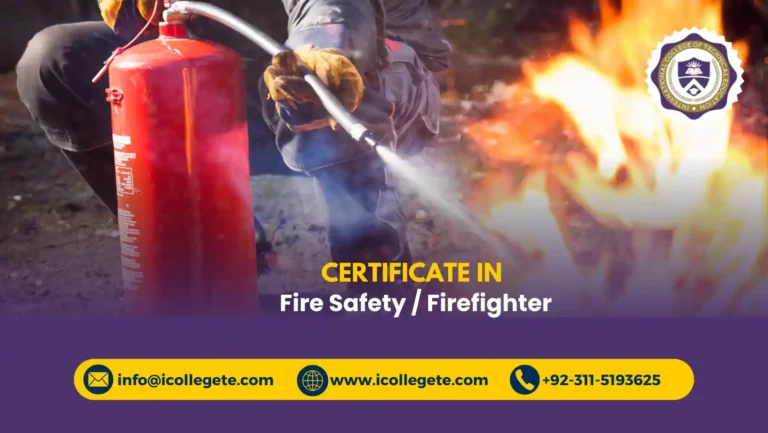In today’s competitive food industry, ensuring the highest standards of hygiene and safety is not only a legal requirement but a critical factor in business success. The Food Safety Level 3 Course in Islamabad is designed for supervisors, managers, and business owners who are responsible for implementing and overseeing food safety systems in their workplace. This advanced qualification empowers individuals to take a leadership role in maintaining food hygiene and safety standards across all operations.
The Food Safety Level 3 course is a comprehensive program focused on providing in-depth knowledge of food safety practices and legislation. It builds upon the foundational principles learned in Level 1 and Level 2 and is intended for individuals who supervise others or manage food safety processes.
This course is essential for those working in Islamabad’s growing food service, catering, and food production industries, where strong food safety management is critical to regulatory compliance and customer trust.
This course is structured to offer a thorough understanding of how to develop, implement, and maintain robust food safety systems. It explores the legal framework governing food safety in Pakistan, hazard analysis, risk management, and the principles of HACCP (Hazard Analysis and Critical Control Points).
The training can be delivered through in-person sessions or virtual classrooms, making it accessible to professionals across Islamabad.
Study Units
The curriculum includes the following key units:
- Introduction to Food Safety Management
- The role of food safety in business operations
- Food safety culture and leadership
- Microbiological Hazards and Foodborne Illness
- Types and sources of contamination
- Conditions for bacterial growth
- Food Safety Legislation
- Food safety laws in Pakistan
- Legal responsibilities of food business operators and managers
- Food Safety Management Systems
- HACCP principles and implementation
- Risk assessment and control measures
- Temperature Control and Storage
- Critical limits for food storage and cooking
- Monitoring systems and record-keeping
- Personal Hygiene and Staff Training
- Developing hygiene policies
- Training and supervising staff effectively
- Cleaning, Waste, and Pest Control
- Cleaning procedures and schedules
- Waste management and pest prevention
- Auditing and Monitoring
- Internal audits and corrective actions
- Continuous improvement in food safety systems
Learning Outcomes
After completing the course, learners will be able to:
- Understand the causes and consequences of foodborne illnesses
- Develop and manage food safety procedures aligned with HACCP
- Conduct risk assessments and implement control measures
- Comply with local and national food safety regulations
- Supervise and train staff on food hygiene practices
- Lead audits and improve food safety performance in the workplace
Course Benefits
- Recognized Certification: Gain a qualification that meets national and international food safety standards.
- Career Advancement: Qualify for supervisory and management roles in the food industry.
- Operational Efficiency: Improve food safety procedures, reduce waste, and prevent costly violations.
- Regulatory Compliance: Ensure your business meets legal food safety requirements.
- Leadership Skills: Strengthen your ability to manage teams and enforce best practices.
Who Is This Course For?
This course is ideal for:
- Food safety supervisors and managers
- Business owners in the food industry
- Quality assurance professionals
- Head chefs and kitchen managers
- Anyone responsible for developing or maintaining a food safety management system
A prior Level 2 qualification or relevant industry experience is typically recommended before enrolling in this course.
Future Progression
Upon successful completion of Level 3, learners can further their expertise through:
- Food Safety Level 4: Designed for senior managers and those responsible for designing company-wide food safety policies.
- HACCP Level 3 and 4 Certification: Specialised training in advanced hazard analysis and critical control point systems.
- Train the Trainer Courses: To become certified food safety instructors.
- Specialised Certifications: In food safety auditing, allergen management, or food microbiology.
These pathways are ideal for professionals aiming to take on leadership, consulting, or training roles in the food sector.
The Food Safety Level 3 Course in Islamabad is an essential qualification for professionals seeking to take on greater responsibility in food hygiene and safety management. With a strong focus on legal compliance, risk control, and leadership, this course prepares you to lead safe food operations with confidence.





